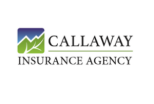Here is an Eye Opener!
If you have a child over the age of eighteen, your child is considered an adult. That is an obvious statement. And you are probably thinking, “Tell me something I do not already know”.
Well, here it is. If your “adult” child is off to college away from home, on a trip out of town, or out of state. And your “adult” child is taken to the hospital due to an injury or sickness. You will not have access to any medical records, medical decisions, or any access that concerns your “adult” child’s health and welfare.
Stop and let that sink in. Your child who you more than likely still support financially. Are still paying for their education. Is in the hospital injured or sick and you have absolutely no input nor control of the wellbeing. Let us take it a step further, your child is incapacitated and unconscious.
Your child’s life is in the hands of the doctors and the hospital. And you can do nothing about it.
I was just made aware of this recently. My son is nineteen and type one diabetic. There are many things that could happen to him while he is at college or at work.
Due to HIPAA, Health Insurance Portability and Accountability Act of 1996, our medical information is kept private. This is something that everybody wants. But, as usual, our legislators do not read between the lines. And due to that, the aforementioned problem(s) can occur.
Your adult child has rights to privacy. And due to the law, and of course our litigious society, the Doctors and the Hospitals will not over step their bounds due to the possibility of future lawsuits.
What can you do about it?
There are three documents you need to have. As of this writing, my wife and I have one. We need to get the other two completed.
1. HIPAA Release: HIPAA (the Health Insurance Portability and Accountability Act of 1996) requires health care providers and insurance companies to protect the privacy of patient’s health care information. Those who violate HIPAA are subject to civil and criminal penalties, including jail time, which makes them reluctant to share protected health information without an authorization. While it’s true an agent under a Medical Power of Attorney has the authority to view the principal’s medical records, the Medical Power of Attorney does not grant authority to the agent until the principal is incapacitated. If capacity is questioned, then HIPAA regulations would prevent access to protected health information. This means that even parents may be prevented from accessing their children’s medical information without an authorization. By signing a HIPPA release your child can authorize doctors to share diagnoses and treatment options with you the parent.
2. Durable Power of Attorney: The Durable Power of Attorney will allow your child to authorize you to manage his or her financial affairs either immediately or in the future should he or she become mentally or physically unable to do so. This would authorize you to handle tasks such as paying bills, applying for social security or government benefits and opening and closing accounts if necessary.
3. Medical Power of Attorney: The Medical Power of Attorney allows your child to authorize you to make medical decisions if he or she is incapacitated and unable to do so. An agent acting under a Medical Power of Attorney is authorized to see the principal’s medical records to make informed medical decisions on his or her behalf.
Another note you may need to be aware of. When you are completing these documents and God forbid need to use them. Be aware of the difference between “consent” and “authorization” under the HIPAA Privacy Rule.
The Privacy Rule permits, but does not require, a covered entity voluntarily to obtain patient consent for uses and disclosures of protected health information for treatment, payment, and health care operations. Covered entities that do so have complete discretion to design a process that best suits their needs.
By contrast, an “authorization” is required by the Privacy Rule for uses and disclosures of protected health information not otherwise allowed by the Rule. Where the Privacy Rule requires patient authorization, voluntary consent is not sufficient to permit a use or disclosure of protected health information unless it also satisfies the requirements of a valid authorization. An authorization is a detailed document that gives covered entities permission to use protected health information for specified purposes, which are generally other than treatment, payment, or health care operations, or to disclose protected health information to a third party specified by the individual.
An authorization must specify a number of elements, including a description of the protected health information to be used and disclosed, the person authorized to make the use or disclosure, the person to whom the covered entity may make the disclosure, an expiration date, and, in some cases, the purpose for which the information may be used or disclosed. With limited exceptions, covered entities may not condition treatment or coverage on the individual providing an authorization.
Content created by Office for Civil Rights (OCR)
Content last reviewed on July 26, 2013
These three documents are easy to prepare and are relatively inexpensive. If you have a child that has headed off to college this year or out and about traveling the U.S., it’s important that you discuss the importance of these documents with him or her.
Please be aware I am not an attorney. I suggest that you consult with yours.
Lastly, if your “adult” child is traveling outside of the U.S., you should consult with someone knowledgeable of the rules in the countries being traveled.
Be safe.
Corey N. Callaway
Investment Advisor Representative

